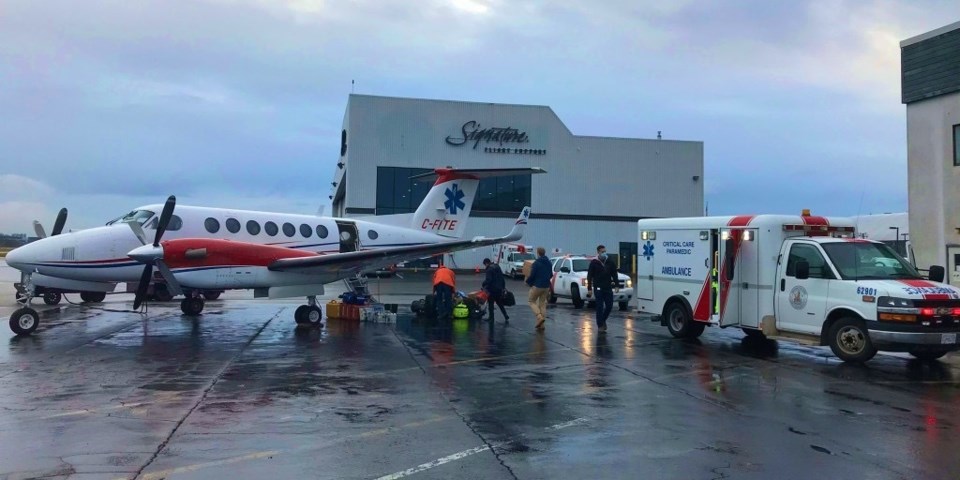B.C.'s Major Incident Rapid Response Team left Fort St. James this week after a special deployment in the community and its surrounding areas.
Emergency Health Services (BCEHS) spent eight days, two four-day missions, in the northern B.C. district and nearby Nak'azdli Whut'en First Nation after 40 COVID-19 cases were initially confirmed on Dec. 9.
In that span, BCEHS responded to more than 100 medical calls, some associated with the virus, as the response unit, which was created specifically for COVID-19 surges, helped with hospital transfers and local paramedics on the ground.
Spokesperson Sarah Morris tells PrinceGeorgeMatters the team is continuing to monitor the local outbreak despite leaving Fort St. James.
However, to continue supporting the community and its healthcare workers, an additional ambulance vehicle and equipment, available through the provincial surge plan, is on the way, along with two paramedics from Vancouver Island.
"The additional ambulance is key to support the high volume of patient transfers in the community," Morris explained, "including COVID-19 patients needing transfers out of the community and into hospitals that can provide more specialized care than what is available locally."
She says these extra hands will remain in Fort St. James until Christmas Eve (Dec. 24).
The Rapid Response Team deployment in #FortStJames is ending today. BCEHS will continue to support #PatientCare in the community w/ an additional ambulance, equipment & #paramedic crew. The Team can be deployed at any time as the need warrants to communities across B.C. #COVID19 pic.twitter.com/IwvP2DnZlA
— Emerg Health Services (@BC_EHS) December 16, 2020
At the end of the first mission, the BCEHS said it was transferring up to five patients a day, most to Prince George's University Hospital of Northern BC (UHNBC)
It adds during November, Fort St. James paramedics responded to its highest call volume for the entire year with 95 9-1-1 calls in the community, well above the monthly average of 50 to 60 calls.
The Major Incident Rapid Response Team consists of two Critical Care Paramedics, one Advanced Care Paramedic and a Primary Care Paramedic.
Critical Care Paramedics are the highest level of paramedic care with a focus on air medical response.
The Nak'azdli Whut'en's community shutdown also formally ends today following its two-week protocol and as of this publication, it's unclear if that stint will be extended.
The First Nation, aside from essential workers, was not letting anybody in or out of the community in an attempt to control the COVID-19 spread.
Its Band Offices are set to be closed from Dec. 19 to Jan. 3, as well as its Social Development office.
Between Nov. 12 and 25, residents may have come into contact with someone who tested positive for COVID-19 at either the Key Resource Centre or the Cold Weather Shelter, both of which are under an outbreak declaration by Northern Health.
The authority has also detected the virus at three schools within the community since students returned to the classroom in September:
- Fort St. James Secondary (SD91) - Dec. 1, 2020; Nov. 19-20, 20-26, 30, 2020
- David Hoy Elementary (SD91) - Dec. 1, 2020; Nov. 25-26, 30 2020; Sept. 17-18, 2020
- Nak’albun Elementary (Independent) - Nov. 22-25, 2020; Sept. 16-18, 2020
Northern Health has recorded 1,465 COVID-19 cases since March, with 15 people succumbing to the virus in the region.
This also includes 401 active cases, 19 people in critical care among 47 total hospitalizations and 1,046 recoveries.
For the week between Dec. 6 to 12, the north has 235 lab-confirmed infections, including 43 in the Nechako local health area, which consists of Fort St. James and Nak'azdli Whut'en, and 95 in Prince George's local health area.




